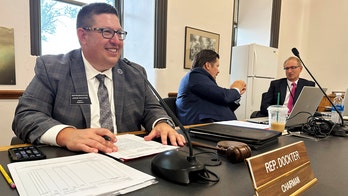A bipartisan group of anti-abortion senators are preparing an amendment similar to one on the House side that would erect a blockade between taxpayer dollars and abortion coverage.
The group of lawmakers includes Sen. Ben Nelson, D-Neb., and Sen. Orrin Hatch, R-Utah. They're looking to replicate the work of Rep. Bart Stupak, D-Mich., and Rep. Joe Pitts, R-Pa., who included an amendment in the House-passed bill to prevent taxpayer subsidies from going toward abortion coverage.
A number of groups and lawmakers had criticized Senate Majority Leader Harry Reid's bill for not including similar restrictions. Nelson earlier questioned the Senate plan to build a firewall between federal and private funds. He called the leader's move "complex" and asked to be briefed on how it would work.
The appearance of the amendment suggests Nelson and some of his colleagues are not convinced the current language will adequately restrict taxpayer funding from going toward abortion. Hatch, though, acknowledged it may be tough to get the 60 votes needed to pass the amendment.
"We're not talking about doing away with abortion. We're talking about refusing to have federal funds pay for it," he said.
The abortion issue has created a deep split on and off Capitol Hill in the health care debate. The Coalition to Pass Health Care Reform and Stop Stupak!, which describes itself as "a broad group of advocacy organizations including progressive groups, women's health groups, organizations representing youth, communities of color, and people of faith and health professionals," plans to hold a rally on Wednesday against the more restrictive language. A release from the group said "hundreds" of people will lobby their members of Congress with a message that the Stupak language "will take existing benefits away from women and jeopardize women's health."
But anti-abortion groups earlier applauded Nelson for announcing he would filibuster any final bill if the abortion language is not changed. Reid needs 60 votes at the end of the day to get health care legislation off the Senate floor and move it closer to the president's desk, so losing even one of his 60 Democrats could be a fatal blow to the overhaul.




